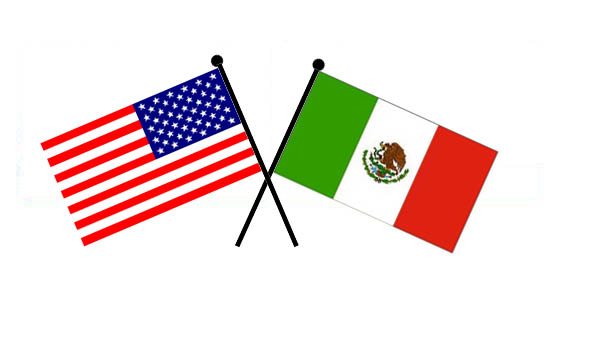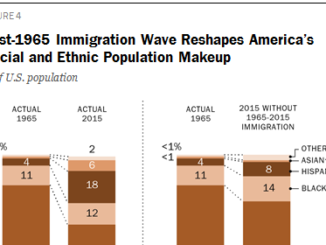
Editorial Board, WSJ
Donald Trump’s path to the Presidency as an outsider always implied on-the-job-training. This week’s lesson: The world is not a Republican primary. President Trump’s Twitter broadsides against Mexico have unleashed a political backlash that has now become a diplomatic crisis with a friendly neighbor.
Mr. Trump fancies himself a negotiating wizard, but in this case he is out-negotiating himself. The White House announced last weekend that Mr. Trump had asked Mexican President Enrique Peña Nieto to Washington to talk about trade, immigration and the border. Despite Mr. Trump’s many slights against Mexico during the campaign, Mr. Peña Nieto accepted.
Mr. Trump proceeded to roll out the red carpet by announcing his plan to build “the wall” on the U.S. southern border that Mexicans of all political stripes consider an insult. On Wednesday he also rolled out press secretary Sean Spicer to aver that “one way or another, as the President has said before, Mexico will pay for it.”
That cornered the Mexican President, who represents a nation unified by Mr. Trump’s anti-Mexico rhetoric. Late Wednesday Mr. Peña Nieto delivered a short national address repeating that Mexico won’t pay for the wall. The Mexican government also let slip that he might cancel his Washington visit.
On Thursday morning Mr. Trump tweeted “if Mexico is unwilling to pay for the badly needed wall, then it would be better to cancel the upcoming meeting.” Mr. Peña Nieto cancelled. Later Thursday Mr. Spicer added confusion with some comments about a border fee as part of tax reform. Chief of Staff Reince Priebus tried to walk that back, but this is amateur hour.
Doesn’t the “art of the deal” include giving your negotiating partner room to compromise? Mr. Trump made it impossible for Mr. Peña Nieto even to negotiate, all the more so after Mr. Peña Nieto went out of his way in August to invite Mr. Trump for a visit. That campaign stop helped Mr. Trump show he could stand on stage as an equal with a foreign leader, but Mr. Peña Nieto took a beating at home when Mr. Trump returned to Mexico-bashing.
When Mr. Trump visited the Journal in November 2015, we asked if the U.S. should encourage political stability and economic growth in Mexico. “I don’t care about Mexico honestly, I really don’t care about Mexico,” he replied.
That’s obvious, but he should care—and he will have to—if Mexico regresses to its ways before its reformation began in the 1980s. For decades our southern neighbor was known for one-party government, anti-Americanism, hyperinflation and political turmoil.
With U.S. encouragement, Mexico began to reform its statist economic model and embrace global competition. Ahead of the 1993 North American Free Trade Agreement (Nafta), Mexico privatized thousands of state-owned companies and deregulated much of the economy. With Nafta it cut tariffs and opened to foreign investment. Mexican agricultural was especially hard-hit by U.S. competition, but its businesses became more efficient and Nafta helped the country rebound from the 1994 peso crisis.
Mexico’s main political parties have since traded stints in power, but both the PRI and the PAN have pressed economic reforms that have raised living standards and given Mexicans reasons to stay on their side of the Rio Grande.
The peso is the only emerging-market currency that trades 24/7 and it is broadly used as a hedge for emerging-market risk. Mr. Trump has accused Mexico of seeking a weak currency, but the central bank has been vigilant against inflation. The main reason the peso has fallen to 21 to the dollar from 17 in less than a year is Mr. Trump’s threats to destroy Nafta and start a trade war. The U.S. President is devaluing Mexico’s currency—the opposite of what he claims to want.
With a population of 128 million, Mexico is America’s second-largest export market for goods. Some six million U.S. jobs depend on trade with Mexico. But the much larger risk is that Mexicans will sour on progress toward joining their North American neighbors as prosperous free-market democracies. This is the moment that Mexico’s left—dormant but not dead—has been waiting for as anti-American Andrés Manuel López Obrador prepares to run for President again in 2018.
Mr. Trump is a foreign-affairs neophyte, but he is already learning that nations can’t be bullied like GOP candidates or CEOs. They have their own nationalist political dynamics and when attacked they push back. Mr. Trump said as a candidate that he’d treat America’s friends better than Mr. Obama did, but his first move has been to treat Mexico like Mr. Obama treated Israel. On present course he may get comparable results, or worse.



